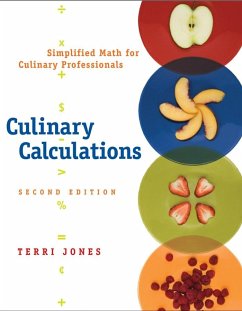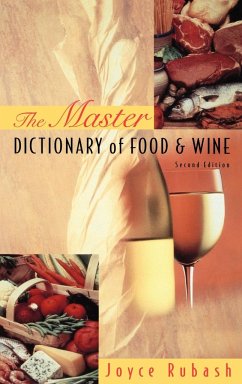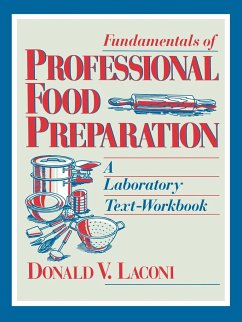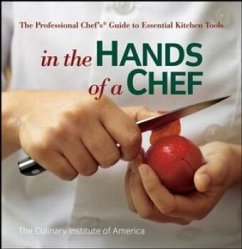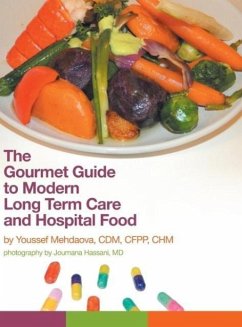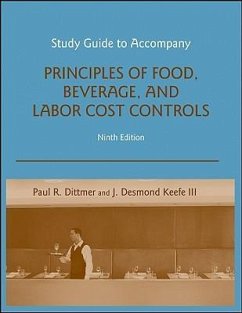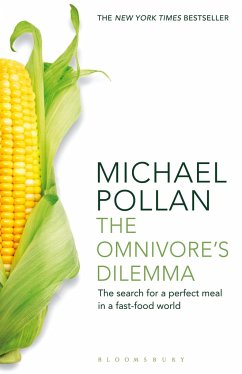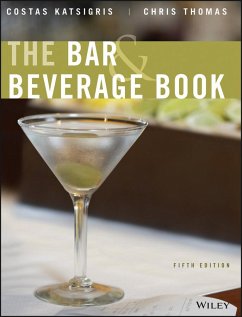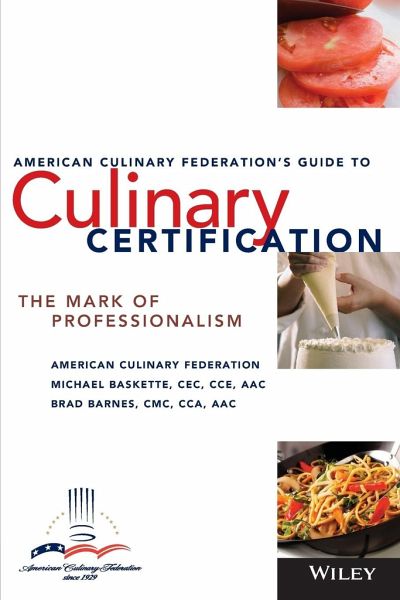
The American Culinary Federation's Guide to Culinary Certification
The Mark of Professionalism
Versandkostenfrei!
Versandfertig in über 4 Wochen
37,99 €
inkl. MwSt.

PAYBACK Punkte
19 °P sammeln!
"American Culinary Federations Guide to Culinary Certification is the essential guide to obtaining the credentials awarded to cooks and chefs, including pastry cooks and chefs, denoting a sophisticated level of industry experience and professional education rigorously evaluated by the American Culinary Federation (ACF). Written by the certifying body of the ACF, this invaluable resource is the only authoritative guide to its certification process. It features clear explanations of specific skills tested at all five certification levels, advice for passing every certification level, and helpful...
"American Culinary Federations Guide to Culinary Certification is the essential guide to obtaining the credentials awarded to cooks and chefs, including pastry cooks and chefs, denoting a sophisticated level of industry experience and professional education rigorously evaluated by the American Culinary Federation (ACF). Written by the certifying body of the ACF, this invaluable resource is the only authoritative guide to its certification process. It features clear explanations of specific skills tested at all five certification levels, advice for passing every certification level, and helpful exam-taking tips. "American Culinary Federations Guide to Culinary Certification is the authority on gaining acceptance into the most comprehensive certification program for chefs in the United States. Its a must-have for career-minded cooks and chefs hungry for renown in the industry.





